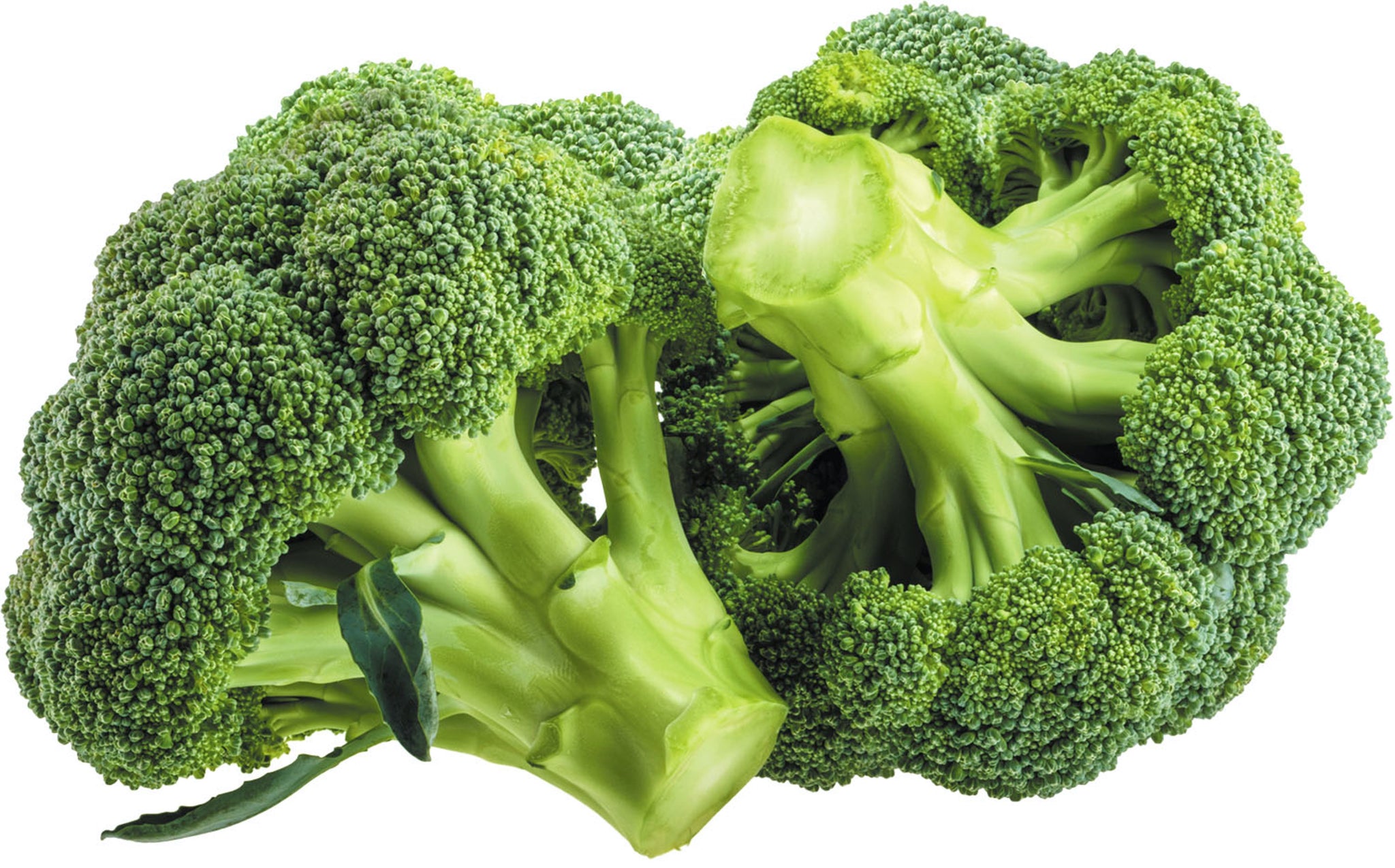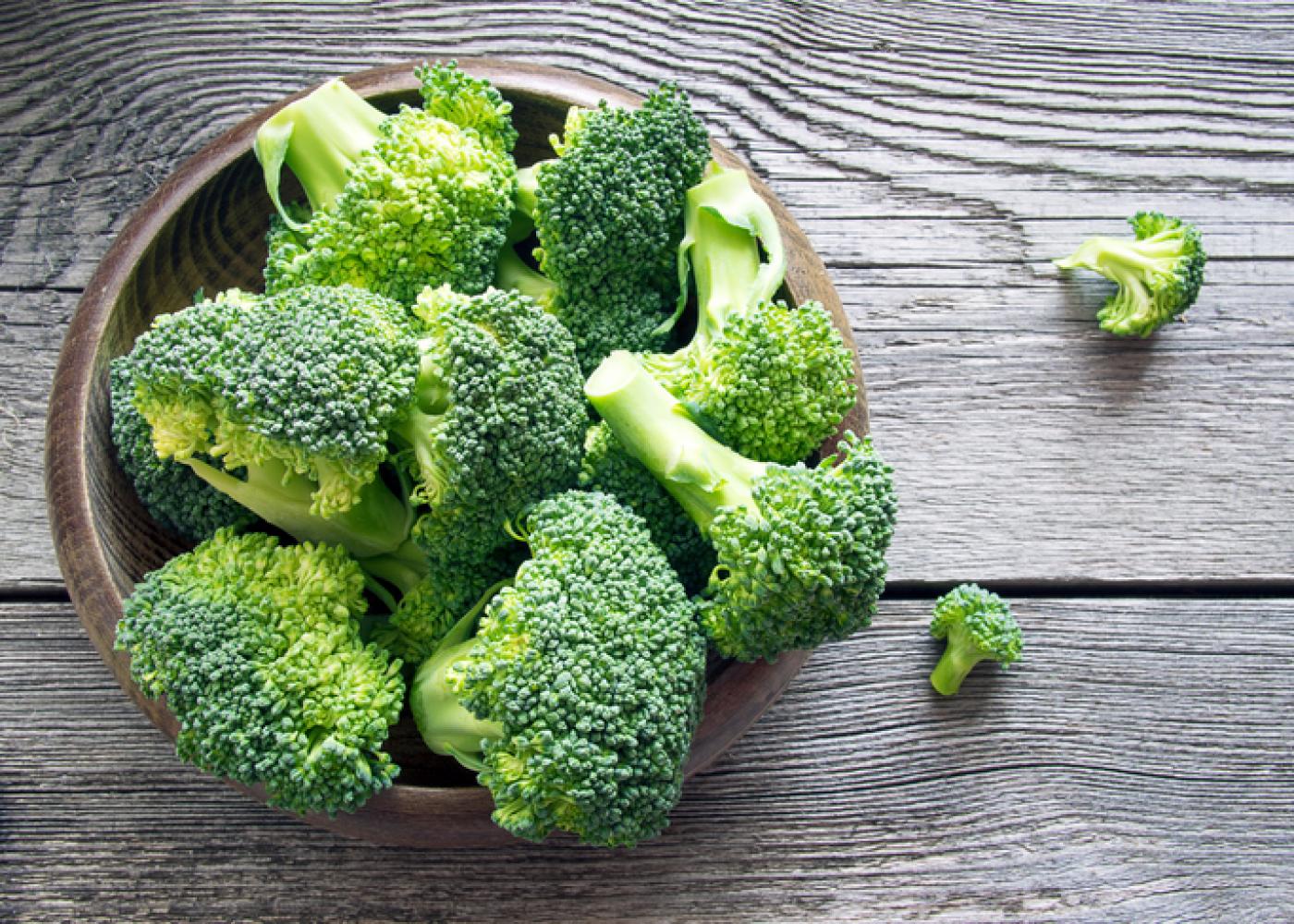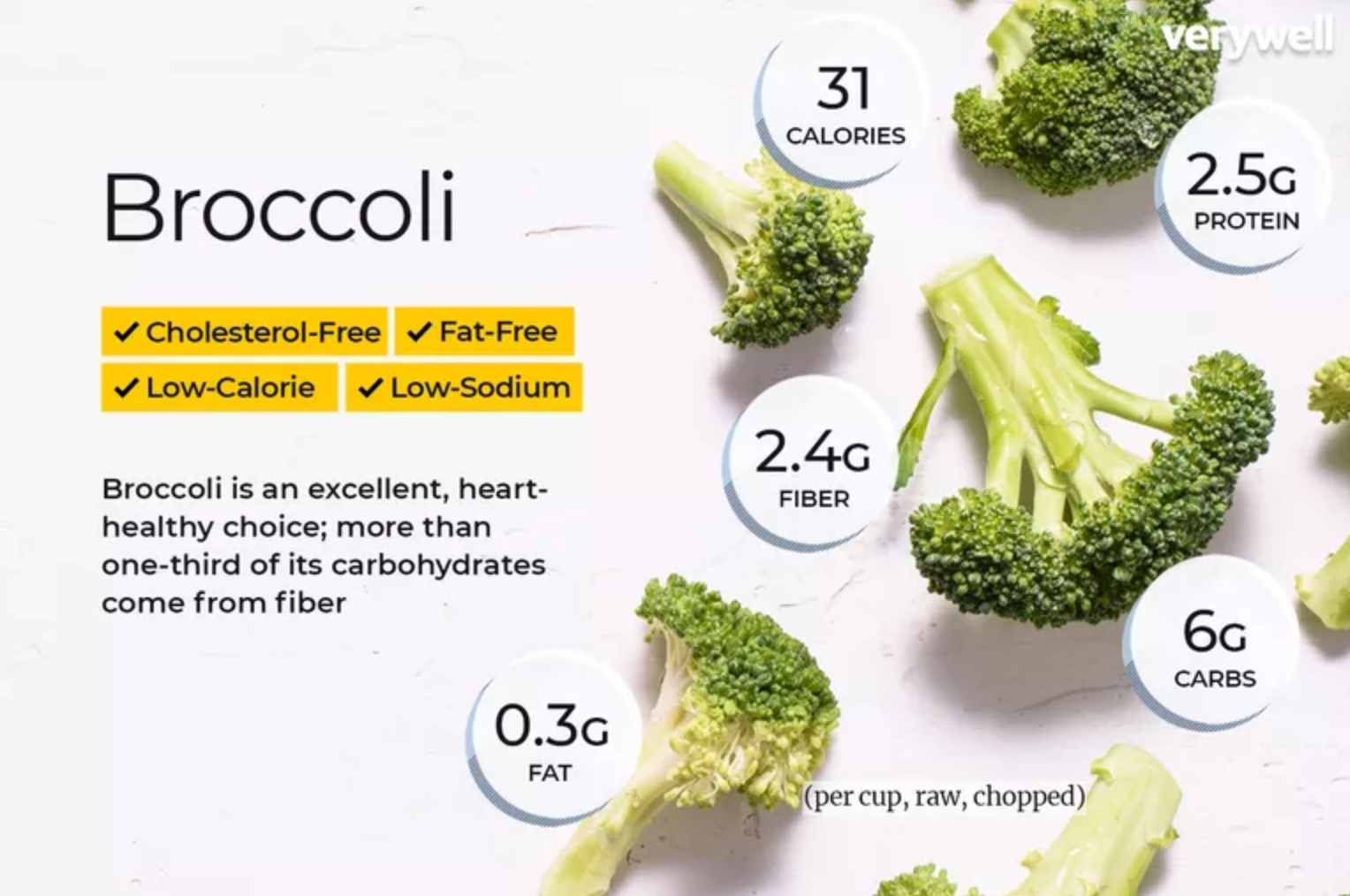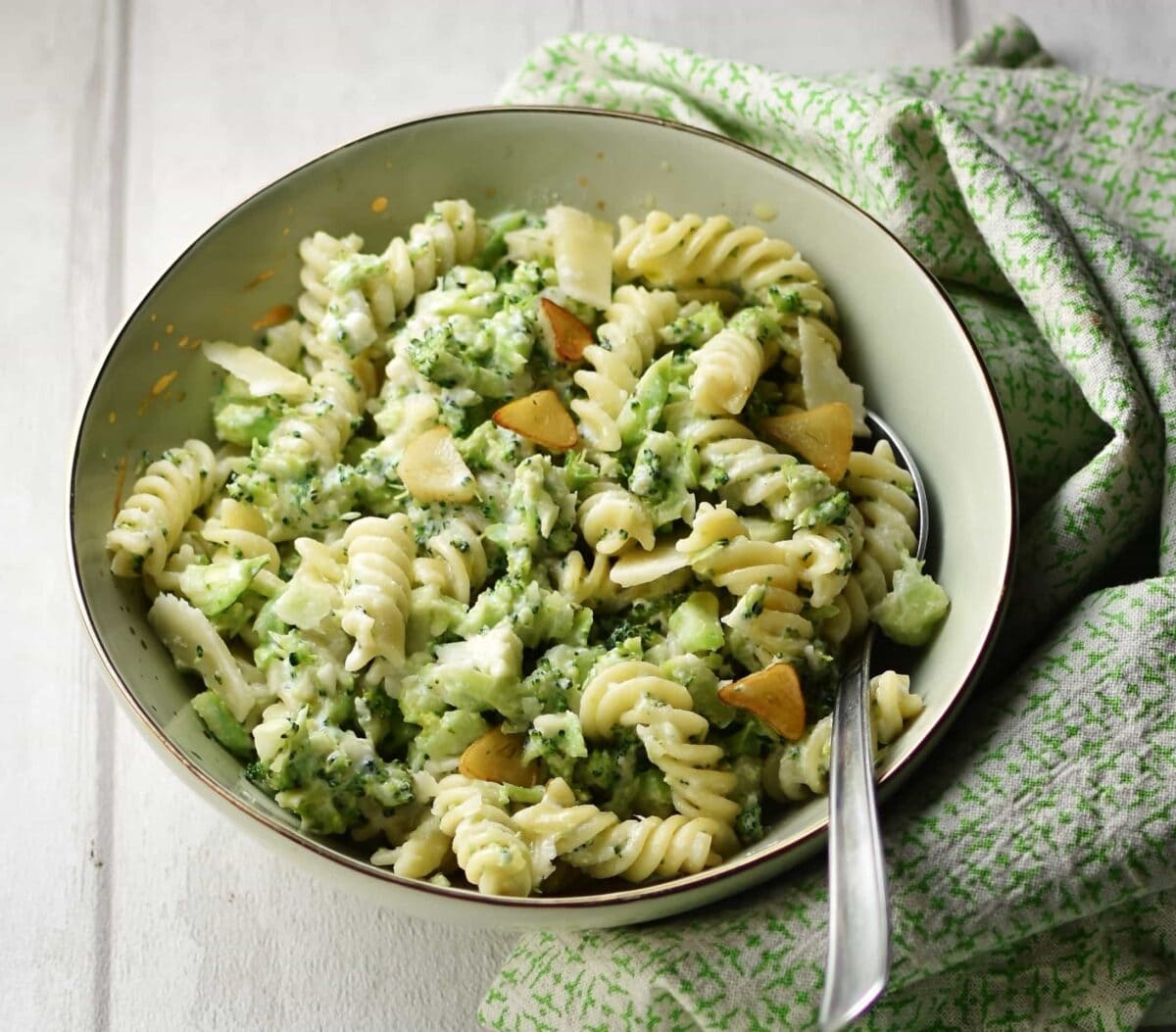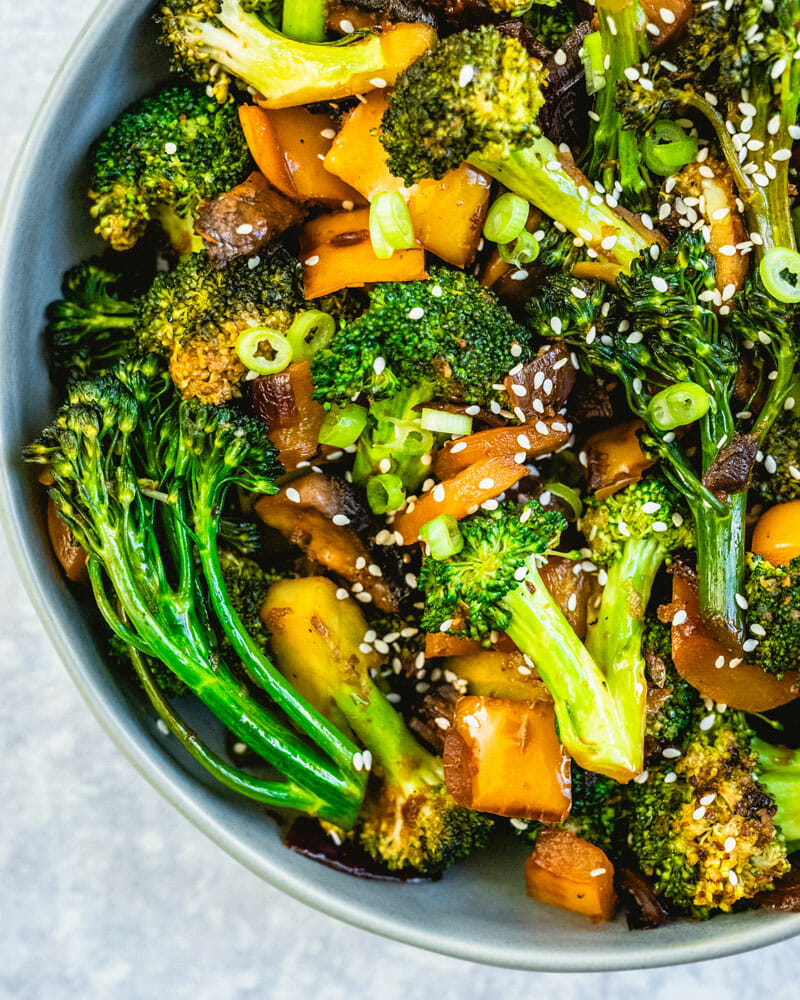Broccoli
- Product Weight: 0 g
- Category: Fresh Fruits & Vegetables, Grocery & Gourmet Foods, Vegetables

Broccoli is a cruciferous vegetable that belongs to the Brassica genus of plants. It's a type of flower and has a thick, central stalk with grayish-green leaves and green florets (there are some purple varieties). It is versatile and easy to find in most grocery stores.
Broccoli is considered to be one of the most nutritious vegetables and, when cooked properly, it can really be a delicious addition to any meal plan.
Broccoli Nutrition Facts
The following nutrition information is provided by the USDA for one cup (91g) of raw, chopped broccoli.
- Calories: 31
- Fat: 0.3g
- Sodium: 30mg
- Carbohydrates: 6g
- Fiber: 2.4g
- Sugars: 1.5g
- Protein: 2.5g
Carbs
One cup of raw, chopped broccoli contains only 31 calories, 6 grams of carbohydrates, and very little sugar (1.5 grams). More than a third of the carbohydrates found in broccoli come from fiber (2.4 grams), making it a filling, heart-healthy food choice.
The glycemic index (GI) for broccoli is 10. The glycemic index is an estimate of how a food affects your blood sugar levels. Broccoli is a low GI food, which means that it has a minimal effect on blood sugar levels.
Broccoli has only a trace amount of fat and is cholesterol-free. It does, however, contain a small amount of omega-3 fatty acids, in the form of alpha-linolenic acid (ALA). Consuming two cups of broccoli delivers nearly 0.5 grams of this anti-inflammatory fatty acid.2
Protein
For a vegetable, broccoli has a significant amount of protein, 2.5 grams per one-cup serving. But you still should include other protein sources in your diet to meet your daily needs.
Vitamins and Minerals
Broccoli is bursting with vitamins and minerals. It's an excellent source of immune-boosting vitamin C, providing over 81mg, or about 135% of your daily needs. It is also an excellent source of vitamin K, important in bone health and wound healing. You'll consume 116% of your daily recommended intake in a one-cup serving of broccoli. It's also a very good source of the B vitamin folate, and a good source of vitamin A, manganese, potassium, and other B vitamins.
Minerals in broccoli include manganese, potassium, and phosphorus.
Health Benefits
Broccoli is associated with several health benefits.
Weight Loss
At only 31 calories a cup, broccoli is a popular addition to the plates of those looking to lose weight. It's high in fiber, with one cup providing about 9% of the recommended daily value. Fiber, the indigestible part of carbohydrate, can help to reduce cholesterol, promote bowel health, regulate blood sugars, and aid in weight loss. Eating foods that are high in fiber helps you to feel full longer after eating.3
Improved Diabetes Management and Prevention
Studies have shown that eating a fiber-rich diet is associated with a lower risk for type 2 diabetes. According to one study of 99,826 women, those with the highest fiber intake had the lowest risk of diabetes. Study authors attribute this health benefit to the fact that foods with fiber take more time to consume and provide greater satiety.
Other studies have shown that broccoli sprouts may improve insulin resistance in patients with type 2 diabetes.5
Better Heart Health
Numerous studies have linked a higher intake of cruciferous vegetables to better heart health, including a reduced risk for cardiovascular disease, ischemic heart, cerebrovascular disease, and stroke. In these studies, broccoli, Brussels sprouts, cabbage, and cauliflower were the most common vegetables grouped as cruciferous vegetables.
This may be one of many reasons that the American Heart Association includes broccoli in their healthy eating pattern that emphasizes vegetables, fruits, and whole grains.
Reduced Risk of Cancer
Some studies suggest that eating higher amounts of cruciferous vegetables like broccoli, cabbage, cauliflower, Brussels sprouts, and kale can reduce the risk of certain types of cancer, including prostate, lung, and breast cancer.8 In addition, diets that are higher in fiber are associated with a decreased risk of colon cancer.4
Broccoli is a cruciferous vegetable that belongs to the Brassica genus of plants. It's a type of flower and has a thick, central stalk with grayish-green leaves and green florets (there are some purple varieties). It is versatile and easy to find in most grocery stores.
Broccoli is considered to be one of the most nutritious vegetables and, when cooked properly, it can really be a delicious addition to any meal plan.
Broccoli Nutrition Facts
The following nutrition information is provided by the USDA for one cup (91g) of raw, chopped broccoli.
- Calories: 31
- Fat: 0.3g
- Sodium: 30mg
- Carbohydrates: 6g
- Fiber: 2.4g
- Sugars: 1.5g
- Protein: 2.5g
Carbs
One cup of raw, chopped broccoli contains only 31 calories, 6 grams of carbohydrates, and very little sugar (1.5 grams). More than a third of the carbohydrates found in broccoli come from fiber (2.4 grams), making it a filling, heart-healthy food choice.
The glycemic index (GI) for broccoli is 10. The glycemic index is an estimate of how a food affects your blood sugar levels. Broccoli is a low GI food, which means that it has a minimal effect on blood sugar levels.
Broccoli has only a trace amount of fat and is cholesterol-free. It does, however, contain a small amount of omega-3 fatty acids, in the form of alpha-linolenic acid (ALA). Consuming two cups of broccoli delivers nearly 0.5 grams of this anti-inflammatory fatty acid.2
Protein
For a vegetable, broccoli has a significant amount of protein, 2.5 grams per one-cup serving. But you still should include other protein sources in your diet to meet your daily needs.
Vitamins and Minerals
Broccoli is bursting with vitamins and minerals. It's an excellent source of immune-boosting vitamin C, providing over 81mg, or about 135% of your daily needs. It is also an excellent source of vitamin K, important in bone health and wound healing. You'll consume 116% of your daily recommended intake in a one-cup serving of broccoli. It's also a very good source of the B vitamin folate, and a good source of vitamin A, manganese, potassium, and other B vitamins.
Minerals in broccoli include manganese, potassium, and phosphorus.
Health Benefits
Broccoli is associated with several health benefits.
Weight Loss
At only 31 calories a cup, broccoli is a popular addition to the plates of those looking to lose weight. It's high in fiber, with one cup providing about 9% of the recommended daily value. Fiber, the indigestible part of carbohydrate, can help to reduce cholesterol, promote bowel health, regulate blood sugars, and aid in weight loss. Eating foods that are high in fiber helps you to feel full longer after eating.3
Improved Diabetes Management and Prevention
Studies have shown that eating a fiber-rich diet is associated with a lower risk for type 2 diabetes. According to one study of 99,826 women, those with the highest fiber intake had the lowest risk of diabetes. Study authors attribute this health benefit to the fact that foods with fiber take more time to consume and provide greater satiety.
Other studies have shown that broccoli sprouts may improve insulin resistance in patients with type 2 diabetes.5
Better Heart Health
Numerous studies have linked a higher intake of cruciferous vegetables to better heart health, including a reduced risk for cardiovascular disease, ischemic heart, cerebrovascular disease, and stroke. In these studies, broccoli, Brussels sprouts, cabbage, and cauliflower were the most common vegetables grouped as cruciferous vegetables.
This may be one of many reasons that the American Heart Association includes broccoli in their healthy eating pattern that emphasizes vegetables, fruits, and whole grains.
Reduced Risk of Cancer
Some studies suggest that eating higher amounts of cruciferous vegetables like broccoli, cabbage, cauliflower, Brussels sprouts, and kale can reduce the risk of certain types of cancer, including prostate, lung, and breast cancer.8 In addition, diets that are higher in fiber are associated with a decreased risk of colon cancer.4



